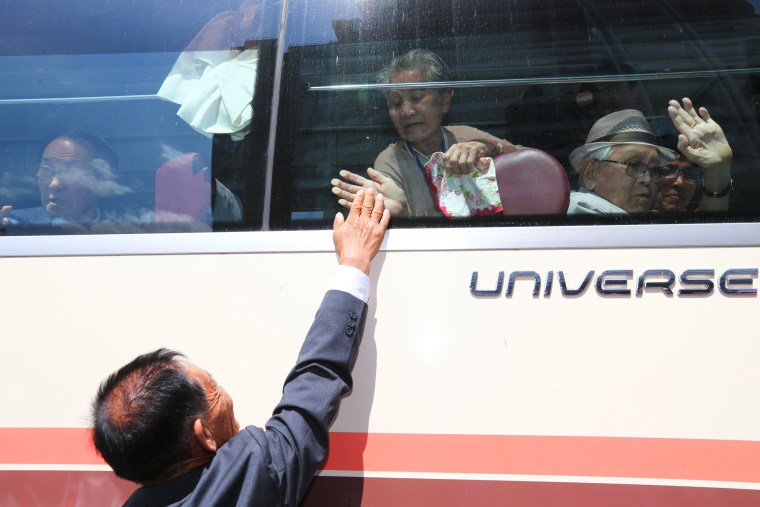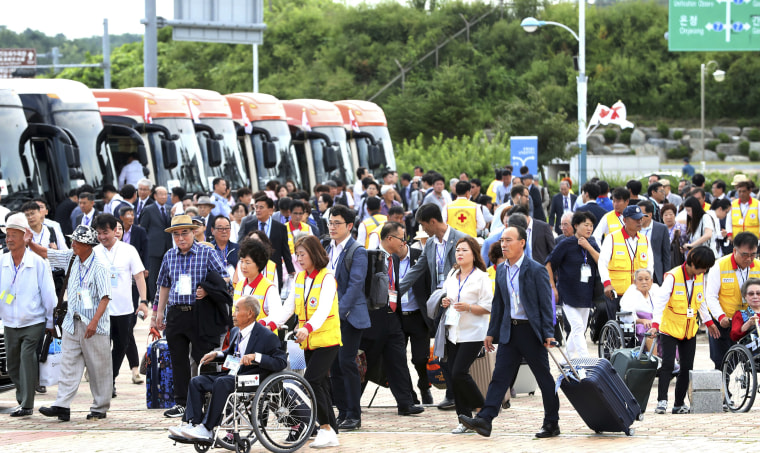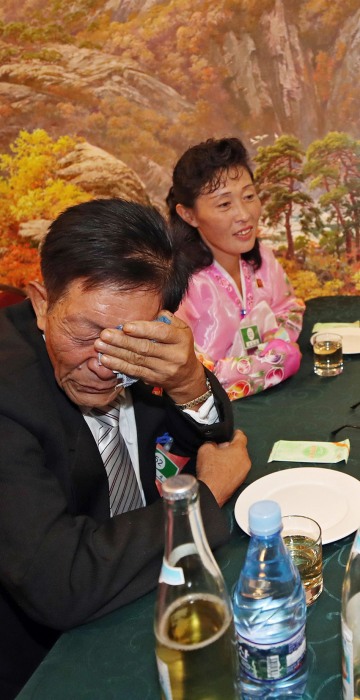
World
Korean families divided by war meet for heart-wrenching reunions
For the first time in three years, elderly North and South Korean relatives separated during the chaos of the 1950-53 Korean War gathered Monday at the North's scenic Diamond Mountain, where they embraced their loved ones after decades apart.
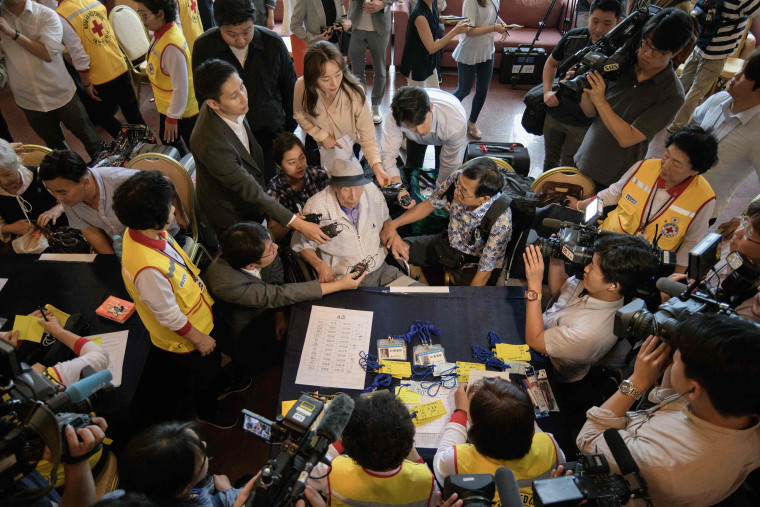
Ahn Jong-ho speaks to reporters as he arrives at a hotel and gathering point ahead of the inter-Korean family reunion in Sokcho, South Korea, on Aug. 19, 2018.
About 90 elderly South Koreans, accompanied by their family members, will have three days of meetings with their North Korean relatives before returning to the South on Wednesday. A separate round of reunions from Friday to Sunday will involve more than 300 other South Koreans, according to Seoul’s Unification Ministry.
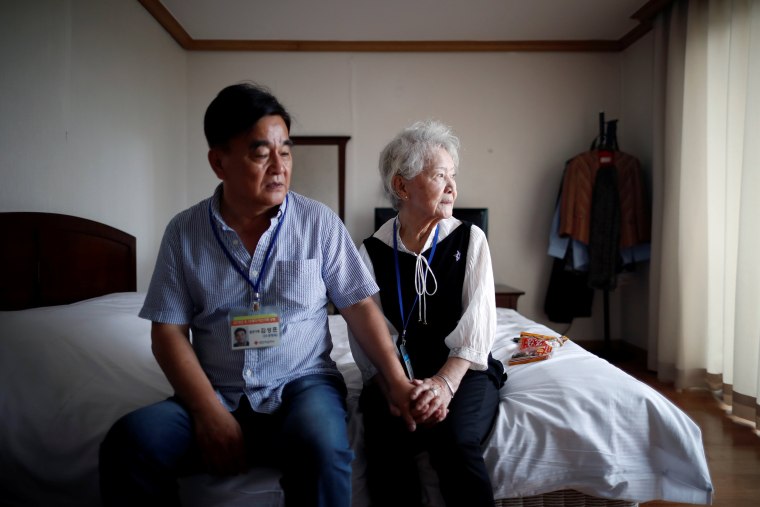
On the eve of her visit to North Korea, Moon Hyun-sook sits on her hotel bed in Sokcho, South Korea.
Once a single country, North and South Korea were divided into a U.S.-backed, capitalistic South and a Soviet-supported, socialist North at the end of World War II in 1945. After the Korean War, the world’s most heavily militarized border formally divided the Korean Peninsula, separating millions.
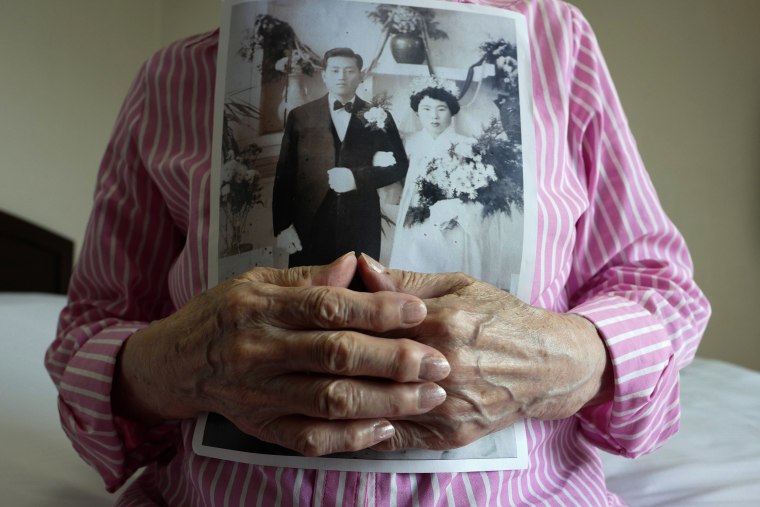
Lee Chun-ja, 88, holds a copy of her wedding picture.
The two Koreas have occasionally allowed separated family members to reunite when the rivals’ ties have been good. Before this week’s reunions, about 23,500 Koreans attended reunions, some 19,800 in person and the others by video, since 2000. The latest reunions stem from rapprochement agreements that the leaders of the Koreas struck during a landmark summit in April.
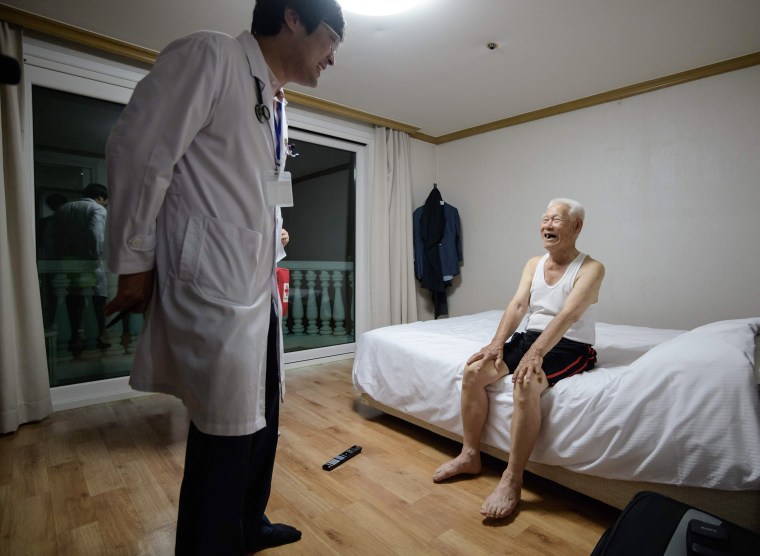
A medic visits Jang Hae-won, 89, on the eve of his departure for North Korea to see two nephews he last saw during the Korean war.
South Korea wants reunions to take place regularly, but North Korea often uses them as a bargaining chip in negotiations. Experts say the North worries that too many reunions would enlighten its citizens about the economically affluent South, and eventually weaken Pyongyang’s grip on power.
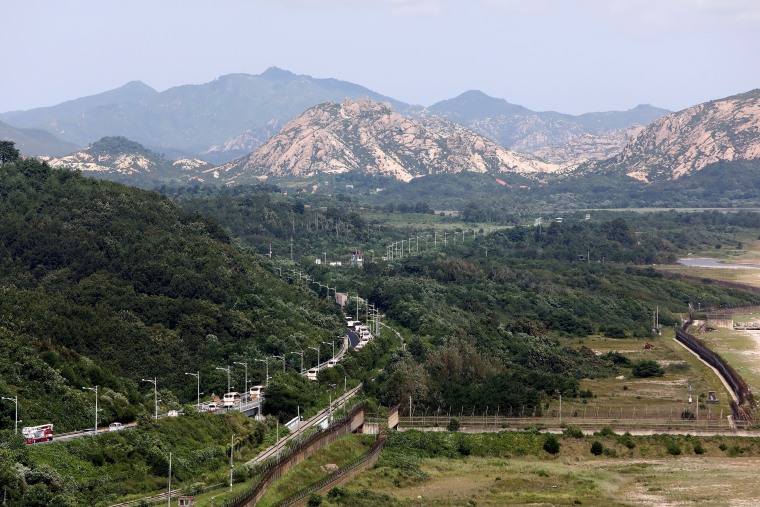
Buses carrying the South Korean relatives travel to North Korea in the Demilitarized Zone (DMZ) on Aug. 20, 2018 in Goseong, South Korea.
In South Korea, more than half of the 132,600 people who applied for reunions — including some of those who got to see their relatives — have died. More than 85 percent of the surviving applicants are in their 70s or older. Those who haven’t had a chance are desperate to reunite with their relatives before they die.
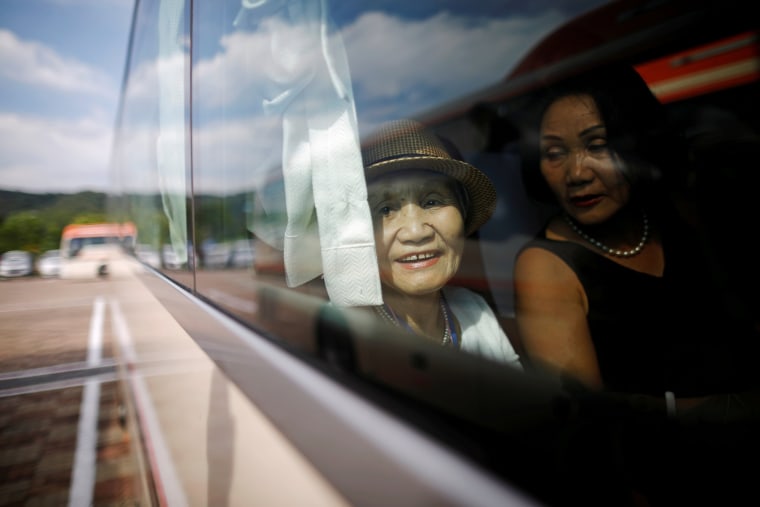
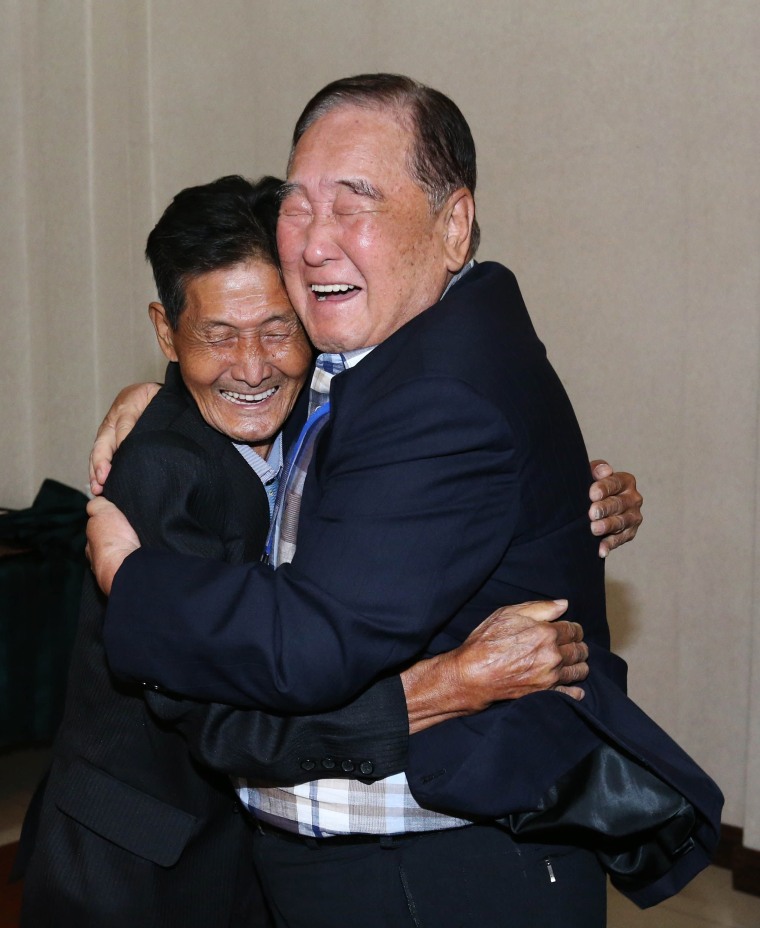
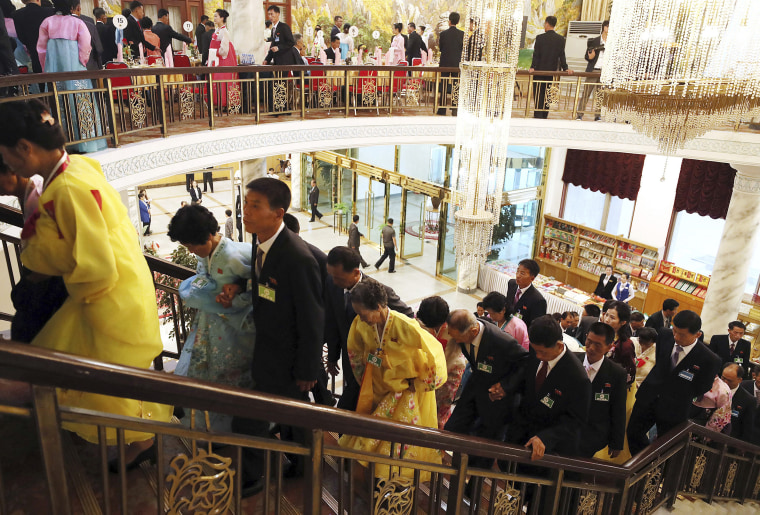
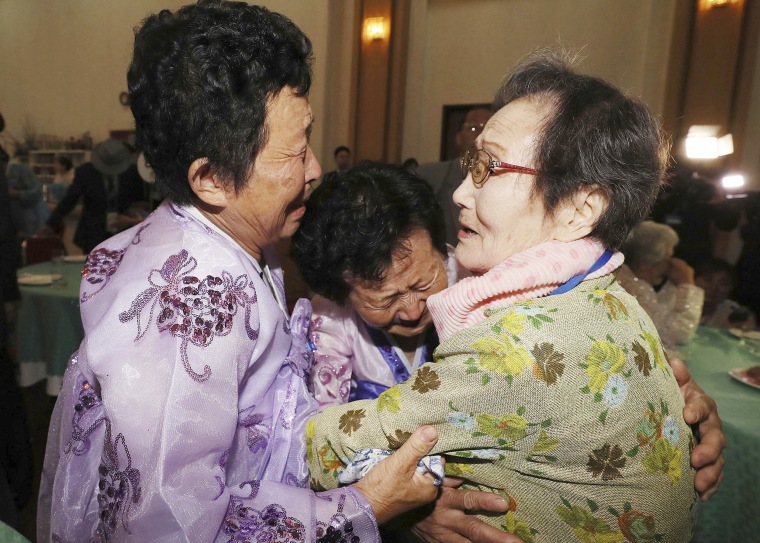
Han Shin-ja, right, a 99-year-old South Korean woman, was at a loss for words after she reunited with her two North Korean daughters, Kim Kyong Sil, 72, and Kim Kim Kyong Yong, 71, center.
Not knowing their separation would be permanent, she left them behind in the North during the war while fleeing south with her third and youngest daughter.
She could only say “Ah” and “When I fled …” before choking up with tears.
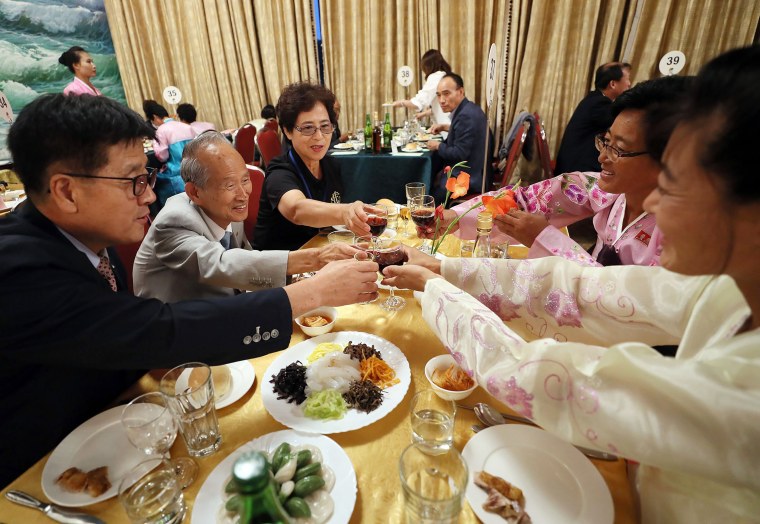
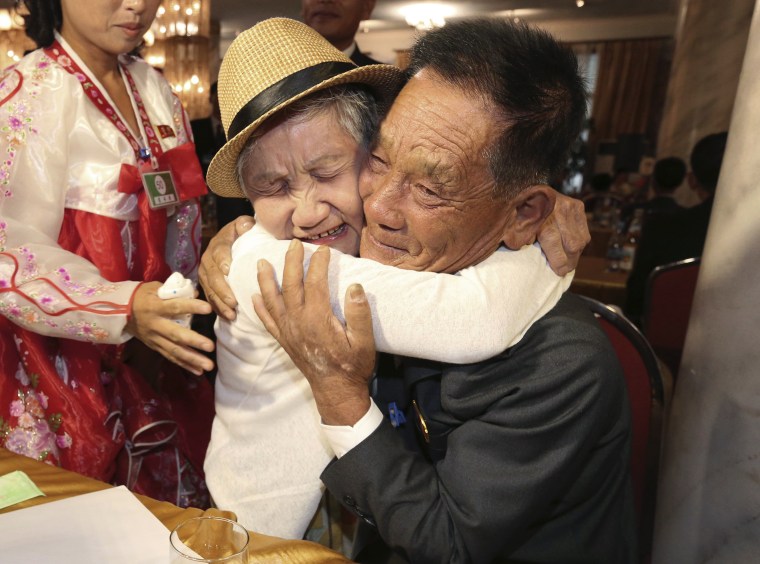
South Korean Lee Keum-seom, 92, left, weeps as she hugs her North Korean son Ri Sang Chol, 71, during their first meeting since they were driven apart during the turmoil of the 1950-53 Korean War.
“How many children do you have? Do you have a son?” she asked her son during their long-awaited encounter.
Hugging the woman he’d last seen when he was 4, Ri showed his mother a photo of her late husband, who had stayed behind in North Korea with him after being separated from his wife while fleeing south. “Mother, this is how my father looked,” Ri said.
Before leaving for North Korea, Lee said she wanted to ask her son “how he grew up without his mom and how his father raised him.”
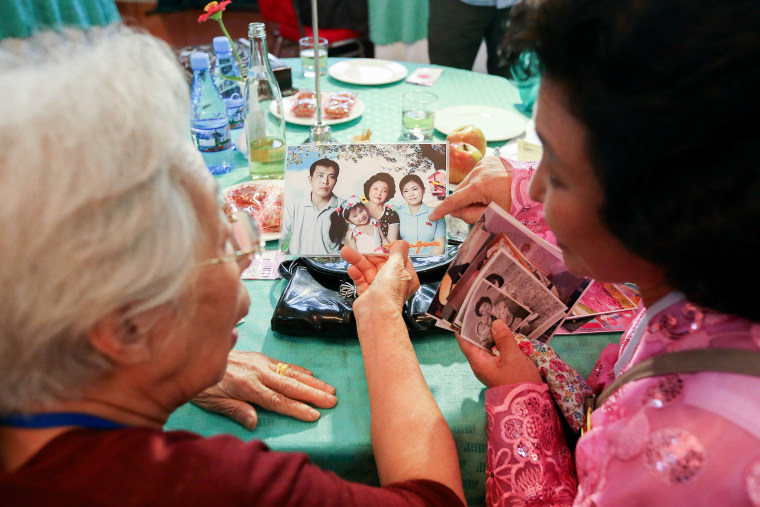
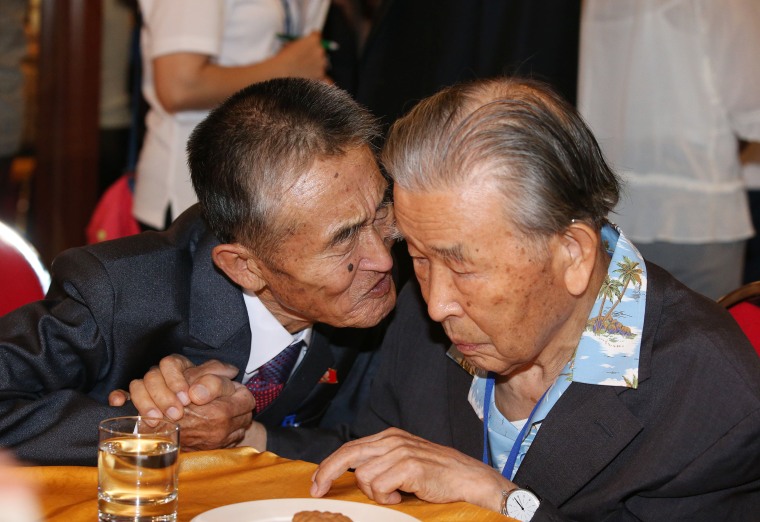

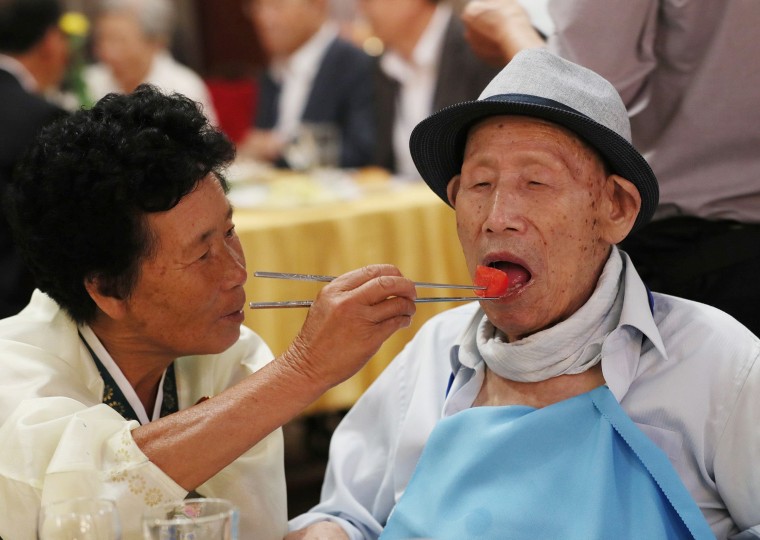
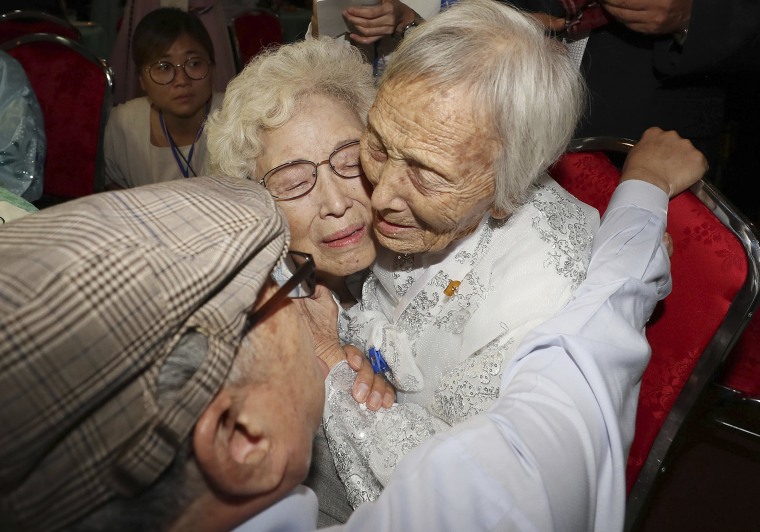
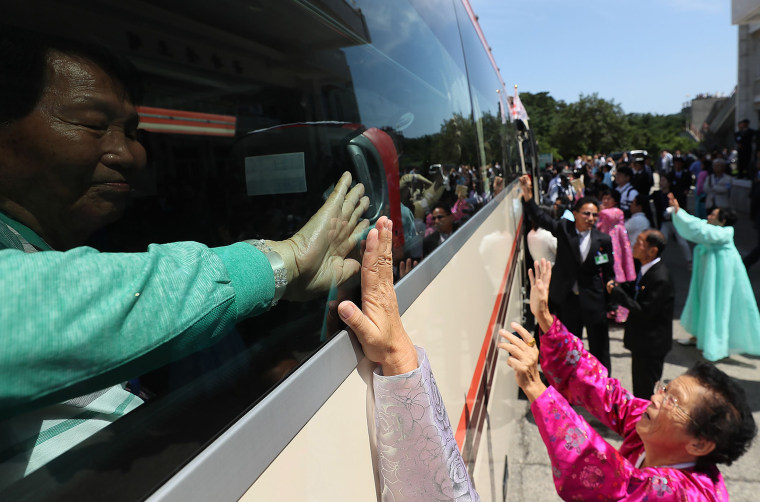
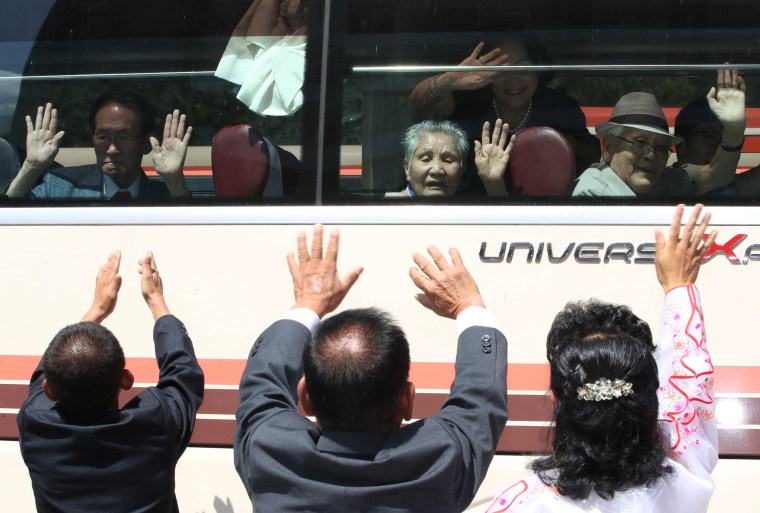
The North sees the reunions as a crucial tool to win concessions from the South, but it has rejected the South's demands to increase the number of reunions and the people participating in them.
The North also ignores the South's proposals for letter exchanges and hometown visits, something currently banned.
